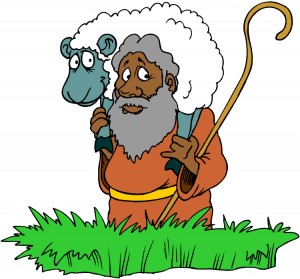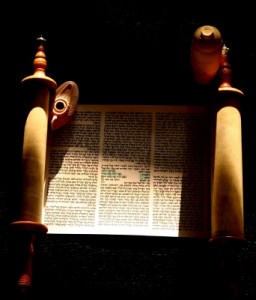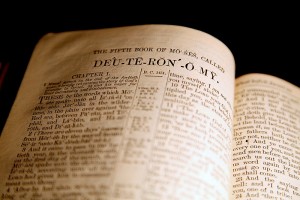Deuteronomy 6:4, Hear [shema] O Israel. This statement (verses 4–9 coupled with Lev 19:18) is known as the “Shema” and is a statement of faith in the Jewish religion. In Mark 12:29–31, Yeshua also cites the Shema as the summation of all that Torah commands humans in order to have a proper relationship with YHVH and their fellow man. The word shema (GNA/shin-mem-ayin) means “to hear, listen, obey.” How often, when it comes to obeying YHVH do we draw near or honor him with our lips, but our hearts are far from him? (See Mark 7:6; Isa 29:13; Matt 15:8.) Though similar in spelling, the words shema and shamar have different etymologies, yet we still juxtapose them conceptually. The Hebrew word shamar is often translated into English as guard, beware or keep (see verse 12), while shema means “to hear and do.” When we guard or keep YHVH’s commandments, we will hear and do them and vice versa. The two concepts of guarding/keeping and hearing/doing go hand-in-hand and when spiritually active in our lives, they prevent us from falling into idolatry, which YHVH warns us against in verses 10 to 16.
Another god. (also Exod 3:14), The phrase another God, resh R in echar RJT (another) is enlarged so as not to confuse with dalet s so that word would read echad sJT (one) in Deut 6:4 (The ArtScroll Tikkun, p. 207).
Deuteronomy 6:10–16, YHVH is constantly warning his people against idolatry; idolatry is anything that gets in the way of our relationship with him. What is of higher priority in your life than serving YHVH? What in your life takes more of your time, energy and money than serving YHVH? What draws your heart away from the study of his written Word, from prayer and fellowship? What or who hinders you from moving forward in your spiritual walk? What in your life keeps YHVH from getting out of a spiritual box in your life? This is idolatry!
Several times YHVH instructs the children of Israel to be certain to instruct their children in Continue reading






